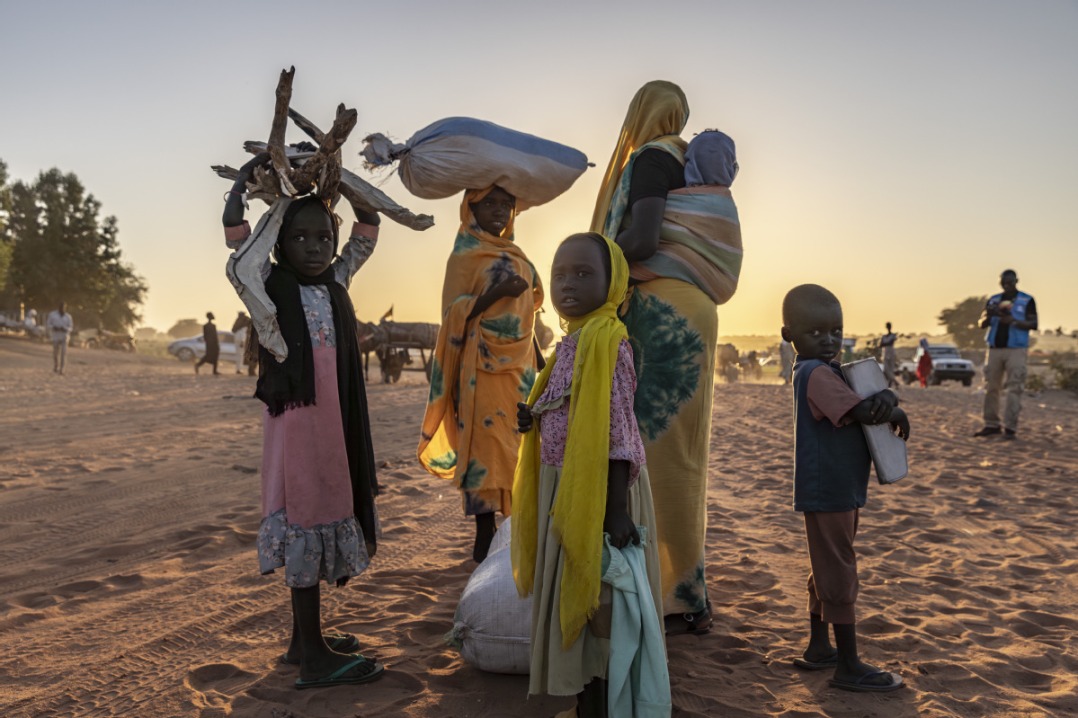NATO's defense hike will harm peace: Experts
Bloc slammed for threatening global stability via increased military budget

The NATO Hague summit's newly announced defense spending target appears more as a political gambit to placate the US administration than a feasible commitment, experts say, warning that NATO's tactic of hyping international tensions to justify soaring military budgets reflects a Cold War mentality.
Under US President Donald Trump's pressure, NATO members agreed to aim for 5 percent GDP defense spending — a target experts call unrealistic and destabilizing to global peace.
Jian Junbo, director of the Center for China-Europe Relations at Fudan University's Institute of International Studies, said: "The Trump administration's proposed 5 percent GDP defense spending target for NATO is baseless and smacks of extortion against Europe."
Before the summit, Spanish Prime Minister Pedro Sanchez publicly called the target "disproportionate and unnecessary".
At the summit on Wednesday, Sanchez secured a last-minute exemption, saying Spain will only spend up to 2.1 percent, which he called "sufficient and realistic".
Jian highlighted this lack of consensus. "Some European countries are far from Russia and don't feel a significant security threat, and many are already struggling with debt and budget constraints. Devoting so much to defense would create new problems."
He further emphasized the impracticality of the target. "Funding such a large increase would be extremely challenging, either straining national budgets and requiring cuts to social programs, or driving up national debt."
Sun Xihui, an associate research fellow with the National Institute of International Strategy of the Chinese Academy of Social Sciences, cautioned the spending surge could backfire. "The US push for increased European defense spending may escalate security pressure on Russia, potentially triggering a new NATO-Russia security dilemma and further threatening European and global stability."
Trump has long expressed skepticism toward NATO, even hinting at a potential US withdrawal. As he traveled to the summit, Trump once again refused to offer an unambiguous endorsement of NATO's collective defense clause, Article 5, telling reporters aboard Air Force One: "There's numerous definitions of Article 5. … But I'm committed to being their friends."
Though the summit's final declaration reaffirmed Article 5, analysts noted Trump's pre-summit remarks signal a continued effort to dilute US security guarantees to Europe.
Cui Hongjian, director of Beijing Foreign Studies University's Center for European Union and Regional Development Studies, said Trump's stance has evolved dangerously for Europe.
"During Trump's first term, he simply withheld endorsement. Now, he is openly questioning its definition, effectively asserting that the US alone can reinterpret this bedrock principle. Under his logic, Article 5 would apply only if it serves US interests. Europe has no say in this unilateral rewrite," he said.
Notably absent from the summit were its so-called "Indo-Pacific partners". Japanese Prime Minister Shigeru Ishiba, South Korean President Lee Jae-myung and Australian Prime Minister Anthony Albanese all skipped the event, citing various reasons. Experts interpreted this as a tacit pushback against NATO's Asia-Pacific expansion.
Sun said: "The no-shows of these nations reflect their increasing distrust in or dissatisfaction with the US under the Trump administration, primarily due to its economic and security pressure on allies, specifically trade tariffs and demands for increased defense spending."
Despite the region's reluctance, NATO's statement still touted the so-called "interconnected Euro-Atlantic and Indo-Pacific security". Cui dismissed this rhetoric, stating that the organization, struggling with internal divisions and desperately seeking to justify its continued existence, is resorting to manufacturing external threats to create unity.
This "obsolete Cold War play-book", he argued, is not conducive to world peace and ultimately endangers everyone.
China's Foreign Ministry spokesman Guo Jiakun said on Thursday's news conference that NATO calls itself a regional organization, but it keeps reaching beyond the geographic scope defined in its treaty and into the Asia-Pacific by claiming that what happens there and in Euro-Atlantic are "interconnected".
"The world is not blind to NATO's calculations, and countries in the Asia-Pacific are certainly wary of it."
yangran1@chinadaily.com.cn
?































